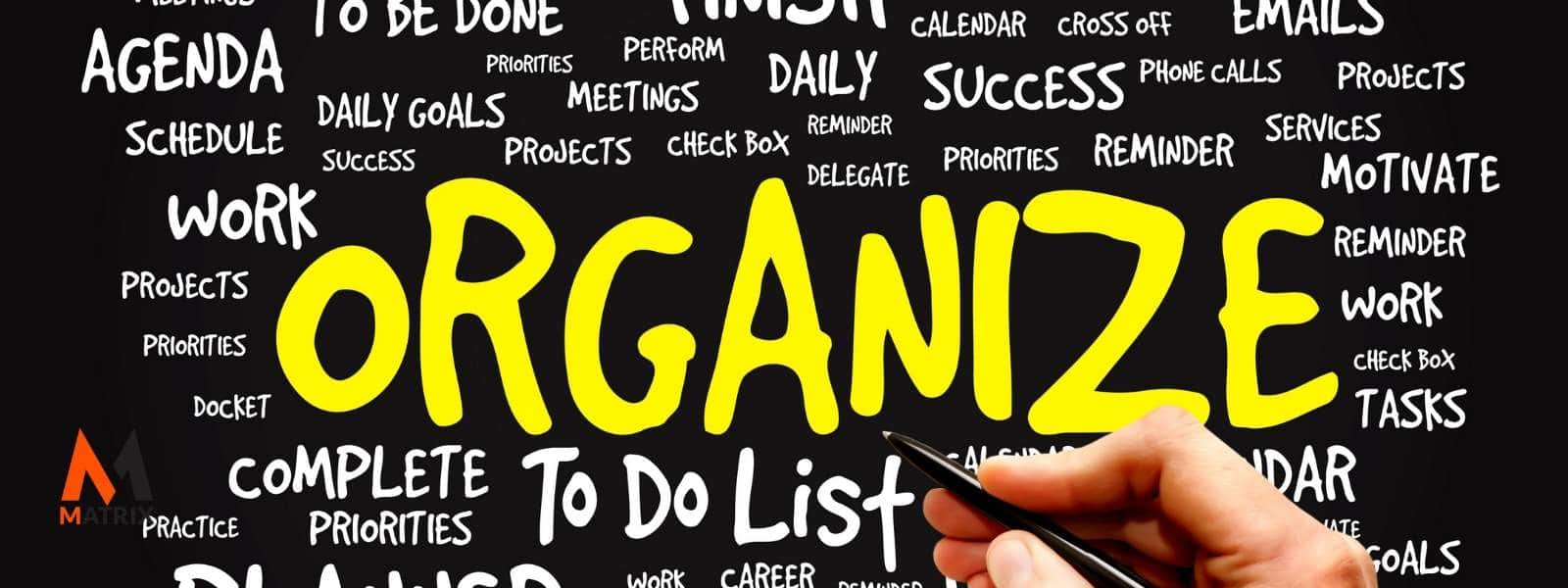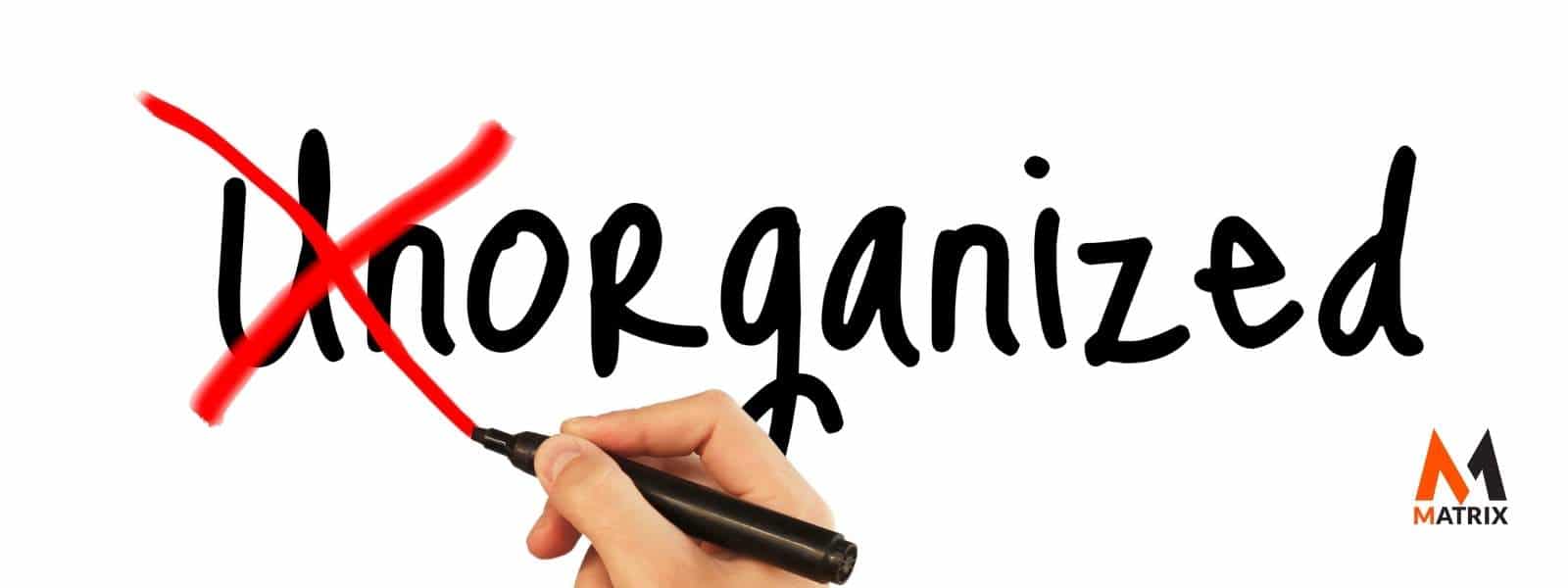Organization Strategies for Your Small Business to Grow and Succeed
Organization strategies help the employee and business become better.
Running a small business is hard. It’s easy to feel like you’re drowning in the chaos of your daily routine, and it can be difficult to find time for everything that needs to get done.
We all know that organization is key for any small business, but how do we go about doing it? There are so many different strategies out there! Which one should I choose?
Organization doesn’t have to be complicated or expensive.
What does it take to become an expert or master performer in a given field? 10,000 hours of practice. It’s a common rule of thumb, popularized by Malcolm Gladwell in his bestseller Outliers: The Story of Success. It’s catchy, easy to remember, and more or less completely false.
We’re debunking the 10,000-hour rule and taking a look at proven ways to practice, learn and achieve mastery.
This general statement cannot be true because you have to put parameters around the specific tasks that you were trying to become a master at. For example, if I want to be an expert skier and ski on and off-piste it might take me 10000 hours to become proficient to rip a line down Rambo at Crested Butte. At a pitch of 55 degrees for about 300 yards, Rambo at Crested Butte Mountain Resort in Colorado is generally cited as the steepest cut ski run in North America.
However, if you want me to learn how to do on-page SEO it’s not going to take me 10000 hours to learn and become a master.
People’s learning styles are all different. People’s pace of learning is different but it’s the little things that will help you become more productive in your personal and work life.
Why organizational drag happens

But why is this happening? Why are employees spending so much time and effort each day on low-value admin?
For smaller companies, the employee admin burden largely comes down to not having good processes in place; in larger ones, processes are quickly hashed together to replace judgment as the company begins to scale.
It’s a powerful mixture of inefficient processes, lack of leadership, and investment in cumbersome tools.
How to increase work productivity

When it comes to work productivity, there are a few things that you can do to increase your output.
- First, make sure that you create a schedule and stick to it.
- Second, make sure that your workspace is clean and organized.
- Third, find methods of storage that work for you.
- And fourth, take breaks!
In this article, we’ll cover 17 proven organization strategies for your small business – from making a schedule and cleaning up after yourself to finding storage methods and more!
1. Start by making a schedule when you start your business
It’s important to be ready for anything. Make sure you plan and set small goals for yourself that will lead to bigger accomplishments down the line.
The first step is to create a schedule – writing out what needs to be done on which days of the week or month can help you feel more prepared.
You might even decide where certain tasks belong in your schedule based on what time of day they need to get done (for example, morning vs. evening).
Scheduling phone calls or meetings at specific times can make life much easier when knowing your responsibilities each day/week/month.
2. Clean up after yourself and organization strategies

Make sure your workspace is free of clutter at all times! If you have to search for supplies or tools, chances are you’re wasting time that could be spent getting other things done.
It’s important to clean up as you go so that things don’t pile up and create more work for you down the line.
3. Find methods of storage
Stores like IKEA are great places to look if you need help organizing your workspace because their products can often double as decoration while also keeping things neat.
Having a good system in place will make it easier to find anything when you need it – such as documents or new supplies/tools – which will save time and energy!
4. Organize your workspace and organization strategies
With dividers and labels to stay on top of your work, If you’re the type of person who likes everything in its place, this tip is for you! Dividers and labels can be used to section off different parts of your workspace so that each area is designated for a specific task.
For example, if you’re an artist, you might want to have one section for drawing materials and another for paints. This will help keep your work organized and make it easier to find what you need when you need it.
5. Don’t forget about the office kitchen
The office kitchen can often become a mess quickly because people constantly use it for snacks, coffee, or lunch. Ensure you have a designated “in” and “out” spot for all of your cookware, dishes, Tupperware, etc. – it’ll make cleanup much easier!- it needs organization too!
6. Get rid of clutter around the house, including old clothes, shoes, and books

Having a clean space is incredibly important when you’re trying to stay organized because if one area (or room) looks messy or cluttered at all times, you’re likely to be less productive.
If you have lots of piles scattered throughout your home that don’t seem to go away no matter how hard you try to organize them, consider donating or throwing out unnecessary items like clothing and accessories that are too worn out (or broken) to wear anymore and books and magazines you’ve already read.
7. Use a calendar to keep track of important dates and tasks
A physical calendar that you can hang on the wall or put on your desk is a great way to keep track of everything you need to do – both personal and professional.
It’s also helpful for noting down any appointments or deadlines that might be coming up. When everything is written down in one place, it’s much easier to stay organized and not forget about anything!
8. Create folders on your computer for different types of files.
If you’re like most people, your computer is where you store most of your important documents.
Make sure you have folders specifically designated for “work” related files, “personal” files, and even “finance” related files if needed!
Labeling documents you’ve worked on with the date, client name, and even a summary of what you did for each is also a good idea. This will make it easier to find specific files when you need them and keep your computer tidy and organized at the same time.
9. Make sure your phone and tablet are always charged
Keeping your phone or tablet charged can be hard if they’re constantly dying because you’re using them all the time throughout the day!
Try charging both devices overnight so that you’re set for whenever you need to check something on either one of them. Having some sort of backup plan (such as an extra battery pack) is also super helpful if there’s no outlet nearby when your device inevitably needs to be charged!
10. Get rid of excess messiness in your bags
It’s incredibly easy for our purse, tote bag, or messenger bag to slowly turn into a black hole – with receipts, candy wrappers, and other pieces of garbage constantly falling out when we least expect it.
Make sure you have designated spots for everything that goes into your bag so that switching purses or bringing the wrong one isn’t a problem anymore!
11. Designate certain parts of your wardrobe for specific tasks

If you’re anything like me (or many other people), you probably have some clothes scattered throughout your room because there wasn’t enough room in the closet or dresser to store them properly.
Label different areas of your closet based on what you want to put in them – for example, “work clothes,” “fancy outfits,” or “gym attire”! This way, you won’t have to search through piles of clothes looking for exactly what you’re looking for.
12. Create a budget and organization strategies
Money can be tough to manage if you’re an adult without much experience managing your funds! Creating a budget ahead of time and working on sticking to it is one of the best ways that you’ll maintain organization when it comes to finances.
It’s also useful to keep track of your expenses and income by downloading a finance app like Mint (which has both Android and iOS apps available) to avoid getting overwhelmed by all the numbers involved with money management!
13. Hang up pictures to brighten your space and motivate you
While some people might be opposed to the idea of having too many things on their walls, hanging pictures is a great way to personalize your space and make it feel like home.
Choose pictures that inspire you or make you happy whenever you look at them, and you’ll be more likely to stay organized and on top of your tasks!
14. Hang a corkboard to keep track of important notes and reminders
A corkboard is a great way to keep track of important information without taking up too much space on your wall. Pin memos, post-it notes, or anything else that you need to remember onto the board so that it’s easily visible whenever you walk by.
This is especially helpful if you work from home, as you can pin notes for your business or reminders about things around the house that need to be taken care of later on.
15. Set some ground rules for yourself When it comes to cleaning up after yourself or keeping your workplace organized, sometimes the hardest part is motivating yourself to do it!
Stating simple rules like “I will always clean my desk” “I will keep this space tidy at all times” are quick and easy ways to remind yourself what’s expected when it comes to organization – even if nobody else might be watching.
16. Use a toolbox with small compartments to organize different items

If there’s one thing that I’ve learned about being an adult, there are a million different little things that you need to keep track of.
From pens and pencils to USB drives and paperclips, having a designated spot for everything will help make sure that you never lose anything again.
Try using a small toolbox with multiple compartments to store all of your stationary – this is also great for people who like to color-code their items for easy identification!
17. Make a schedule and stick to it
One of the best ways to stay organized is creating and following a schedule. This could mean setting specific times for working on certain tasks, eating meals, or even going to bed and waking up.
Having a schedule in place will help minimize distractions and ensure that you’re making the most out of every day. What are some organizational strategies that have worked for you?
Conclusion on Organization Strategies

Although human productive, especially in marketing, task time and disciple in track and analysis where all your time goes. But it’s worth the effort to become a habit.
The organization is key for any small business, but it’s also important to stay organized in your personal life! By following these simple strategies – like labeling sections of your closet or creating a budget – you’ll be able to keep everything under control.
What are some organizational tips that have worked for you? Let us know by commenting below, and we may feature them on the blog next week!
General FAQs about Organization Strategies
What is the best system for organization?
I find that if you set out bins with the things in your room, it’s easier to see all of the little things. Varying sizes can be helpful, too–it’s more difficult to completely organize a space when all the bins are square boxes! Pens and pencils can be easily found in one particular bin while highlighters or sticky notes go in another… It might take some time to get used to this system, but it will prove worth it in the long run. I’ve had my most success with baskets or stacking shelves! You can get them pretty cheap at Ikea. 😊
What are the best time management apps in 2022?
Time management apps are not for procrastinators. If you are the kind of person who delves headfirst into a new resolution on January 1st, spends all their time tracking their steps on some new app, and then throws in the towel by March 1st, be wary of certain apps that promise to do all the work for you.
What are the top 3 project management software platforms?
(1) Basecamp, (2) Trello, and (3) Slack. The first project management software was created way back in 1956 by a guy at General Electric named Dr. Lowell Putnam, who called it the “Programmer’s Workbench.” Ever wondered why? Dr. Putnam started to use a pegboard with holes drilled into it for holding tools and supplies – just like a workbench – as a way to focus on what needed to be done at any point in time, not as one continuous stream of tasks (task-streaming). This man invented the modern-day project management software!
Can a CRM help me get organized?
You bet. CRM platforms like SharpSpring, Keap, and Slaesforce.com get your business in order with processes that save tons of time and help the business grow.

